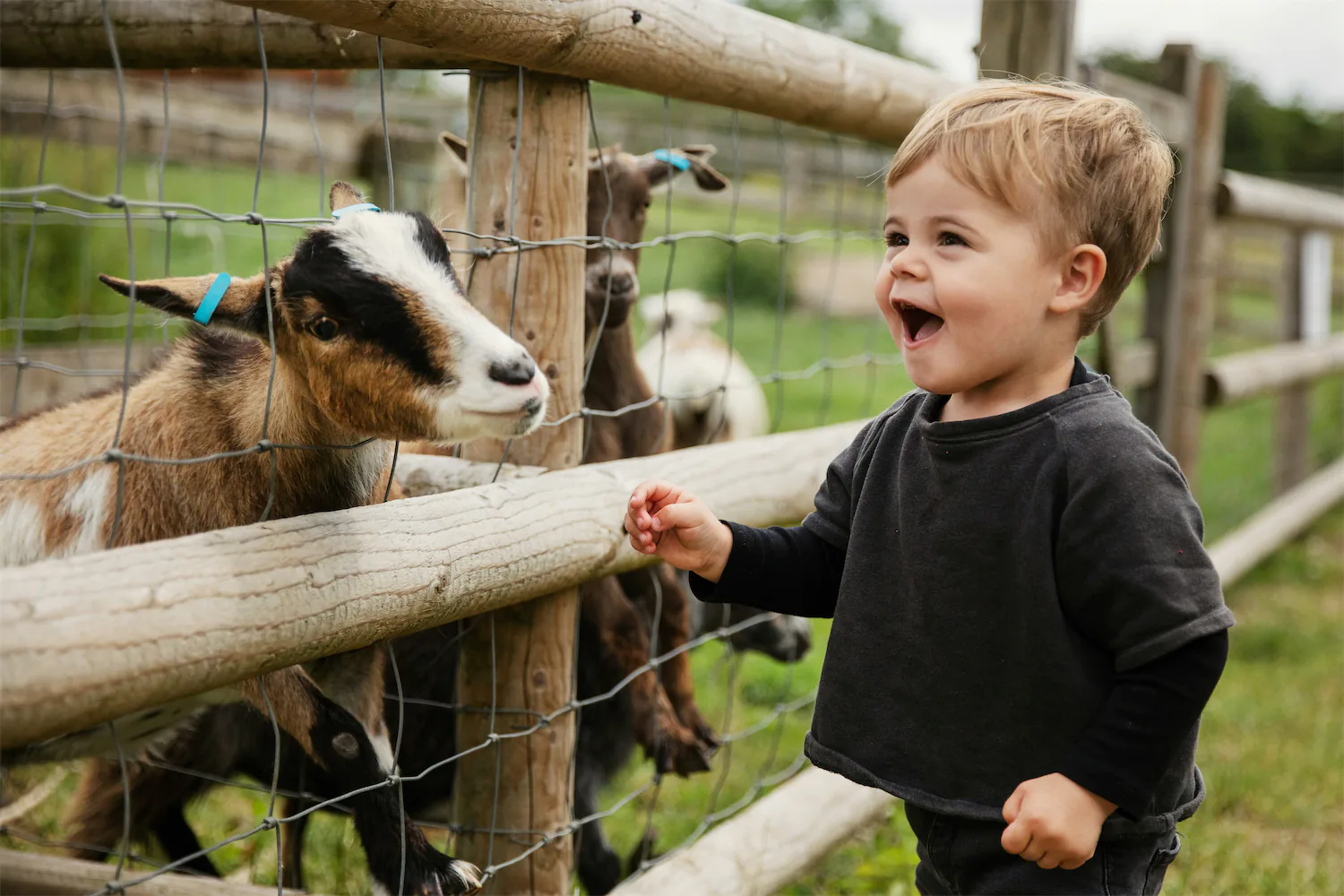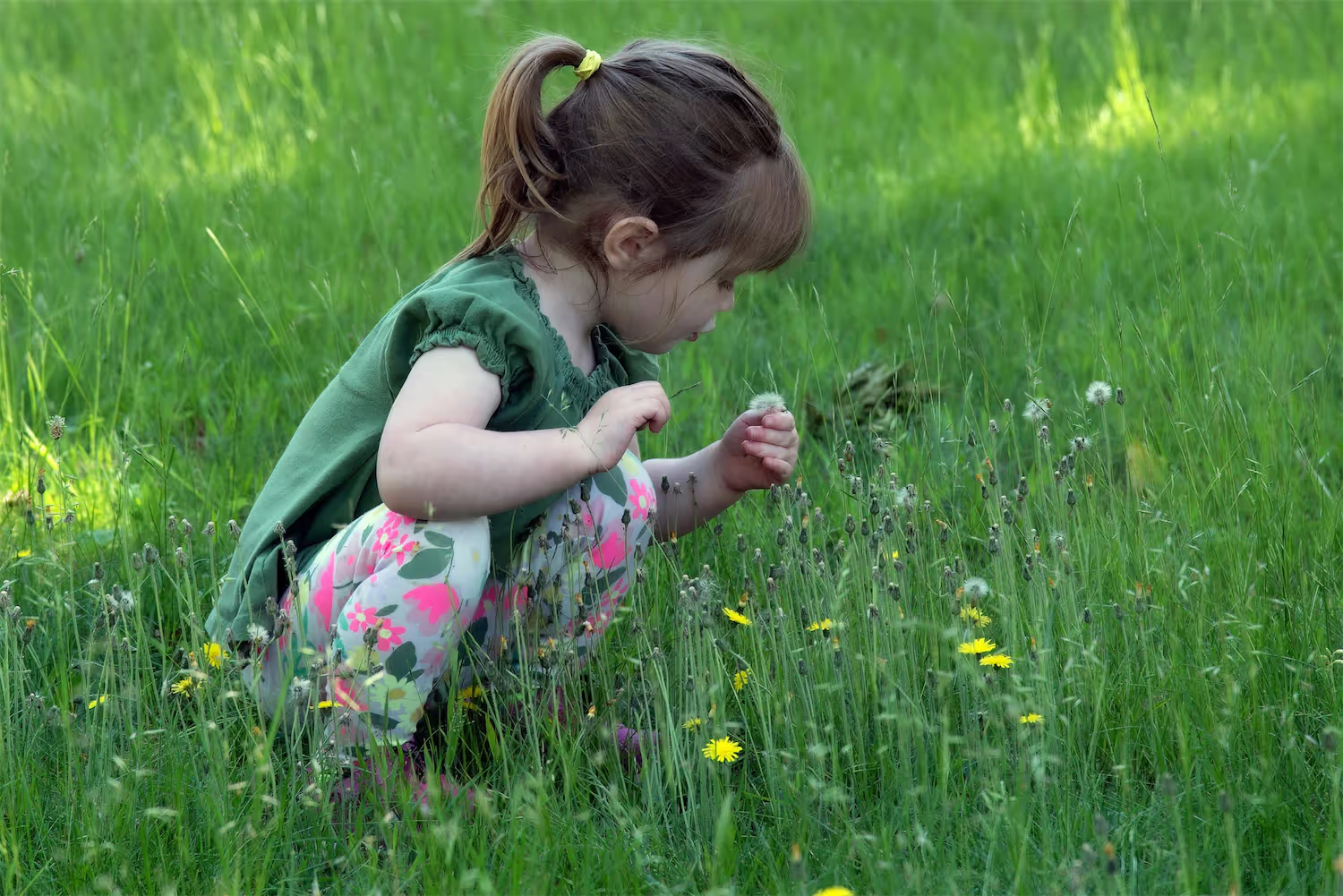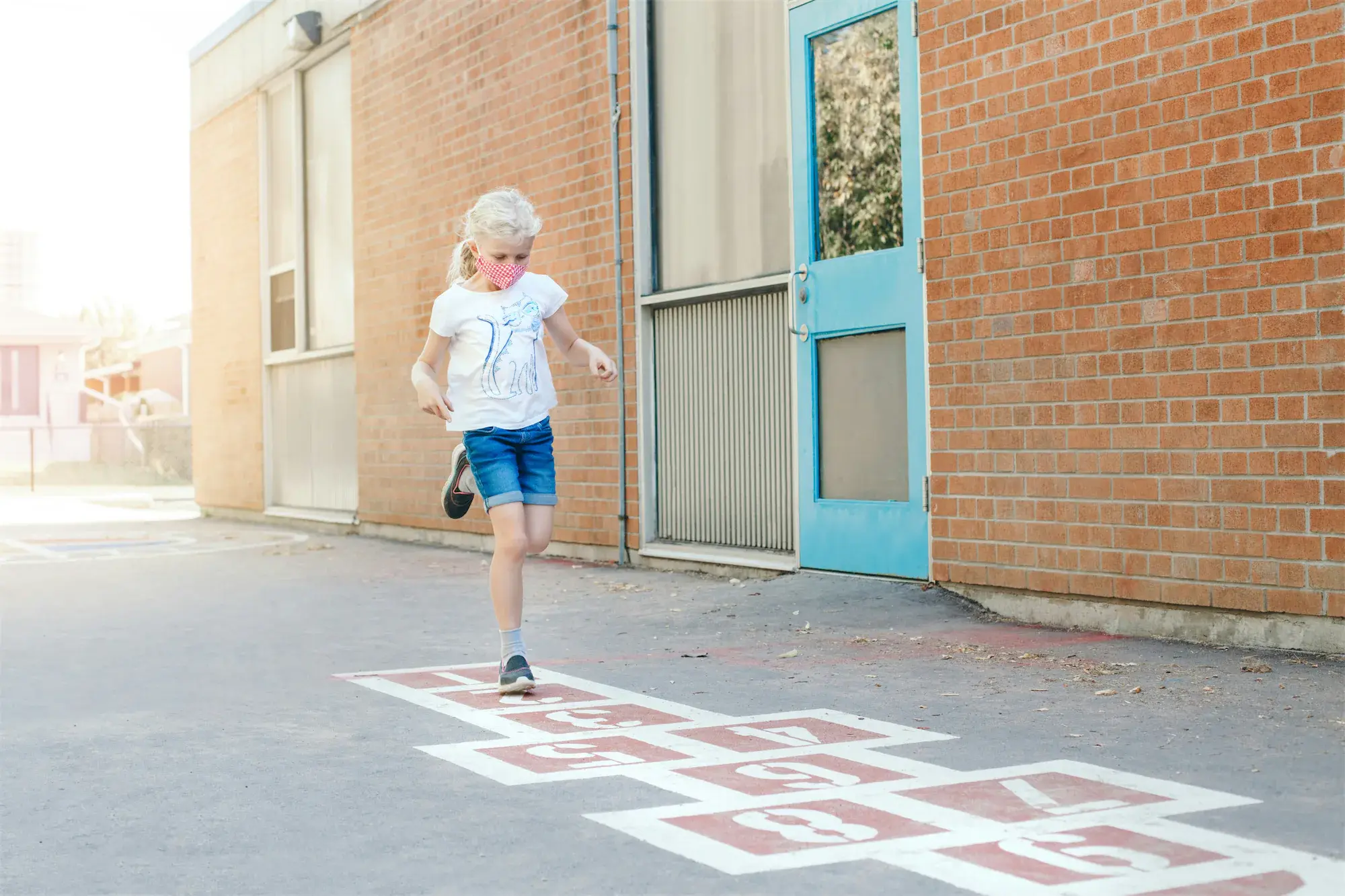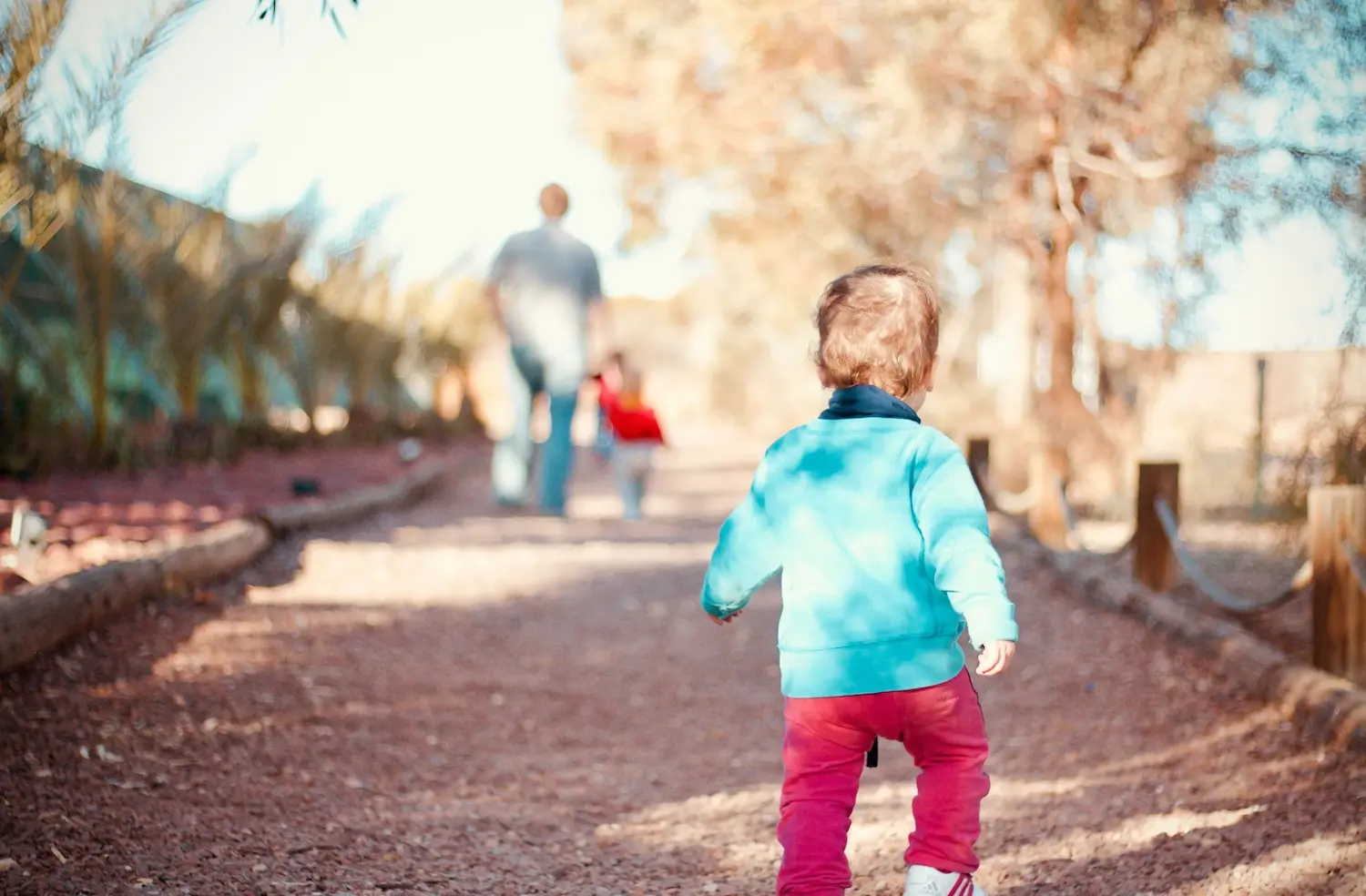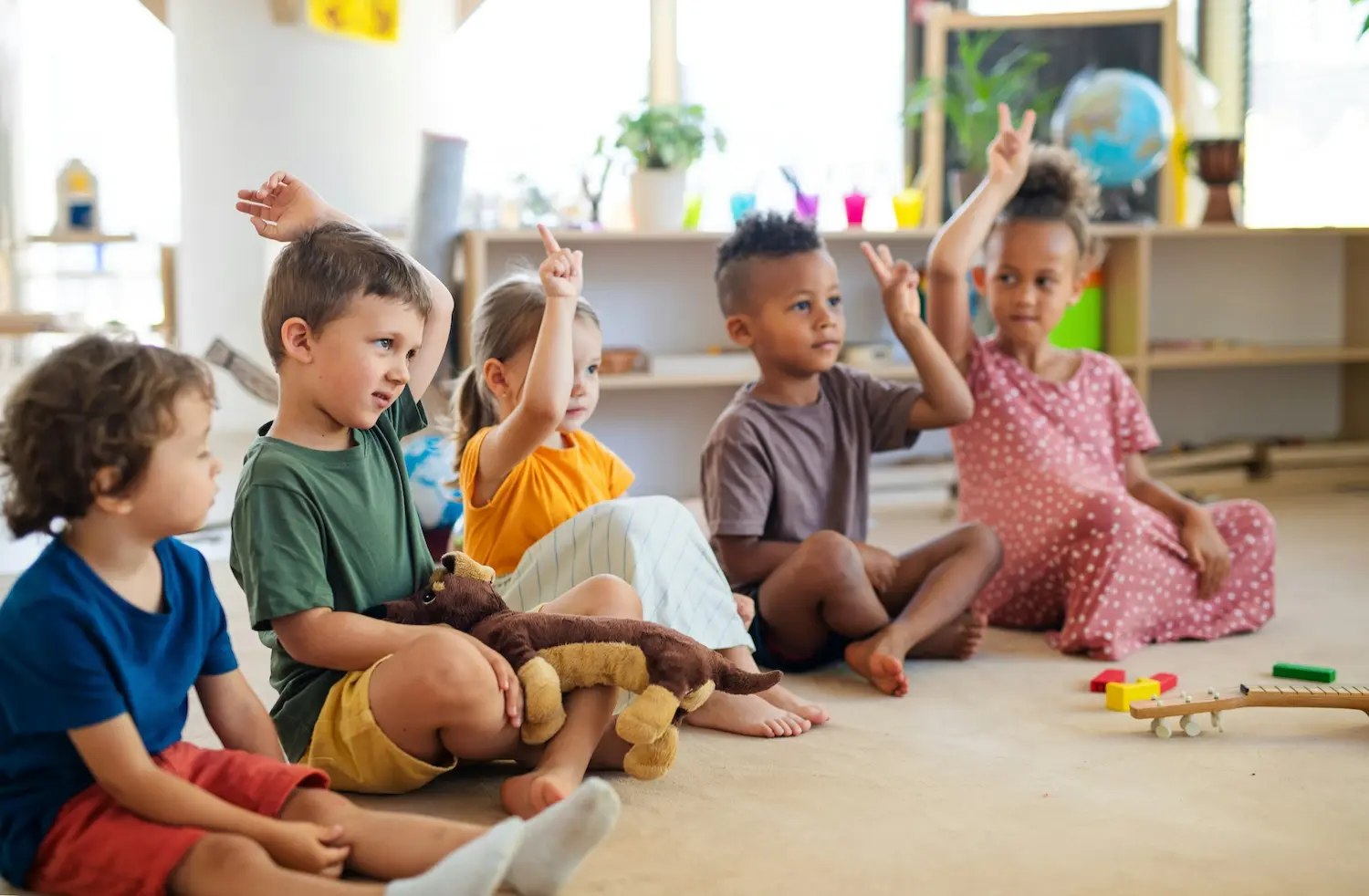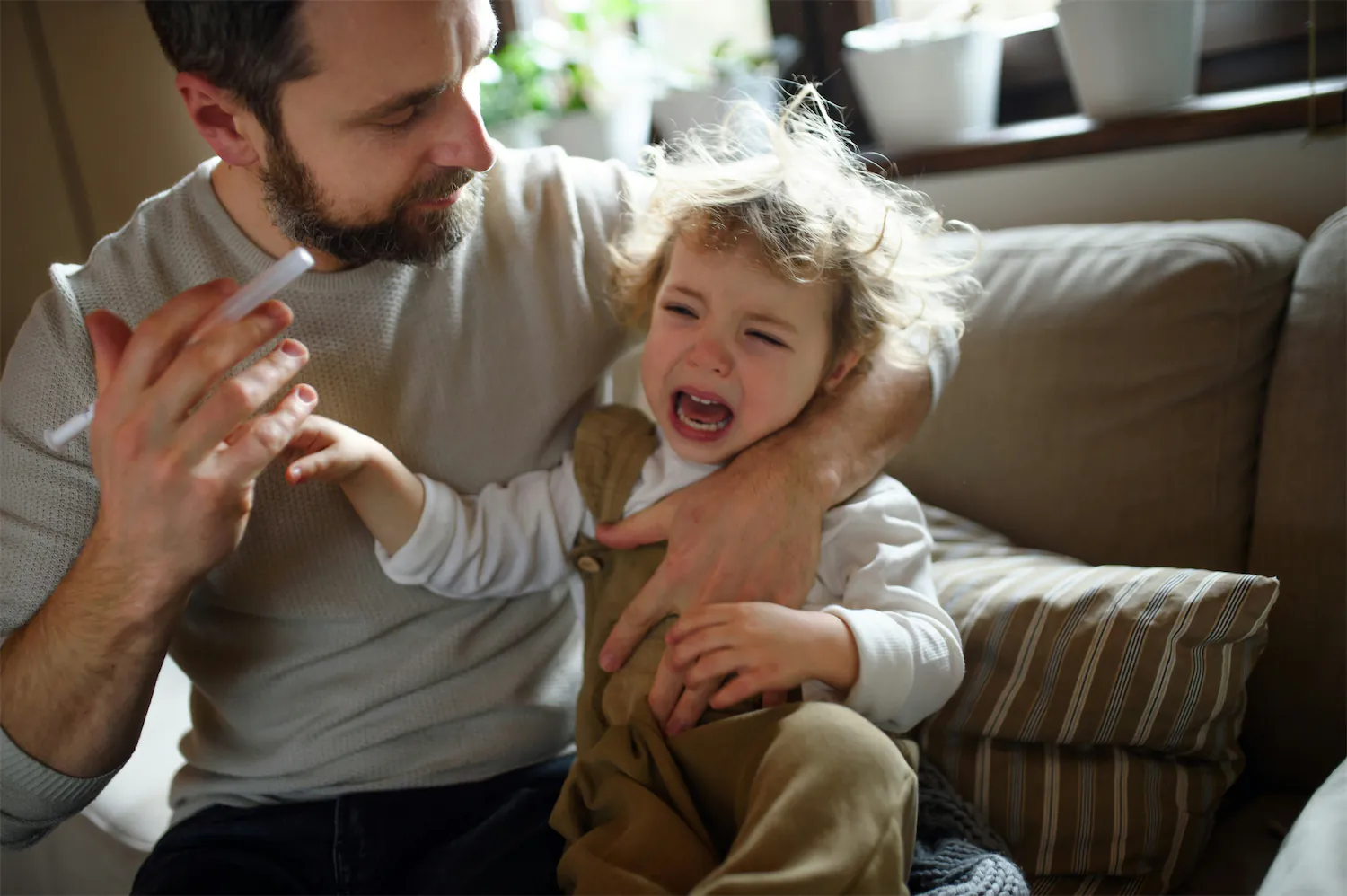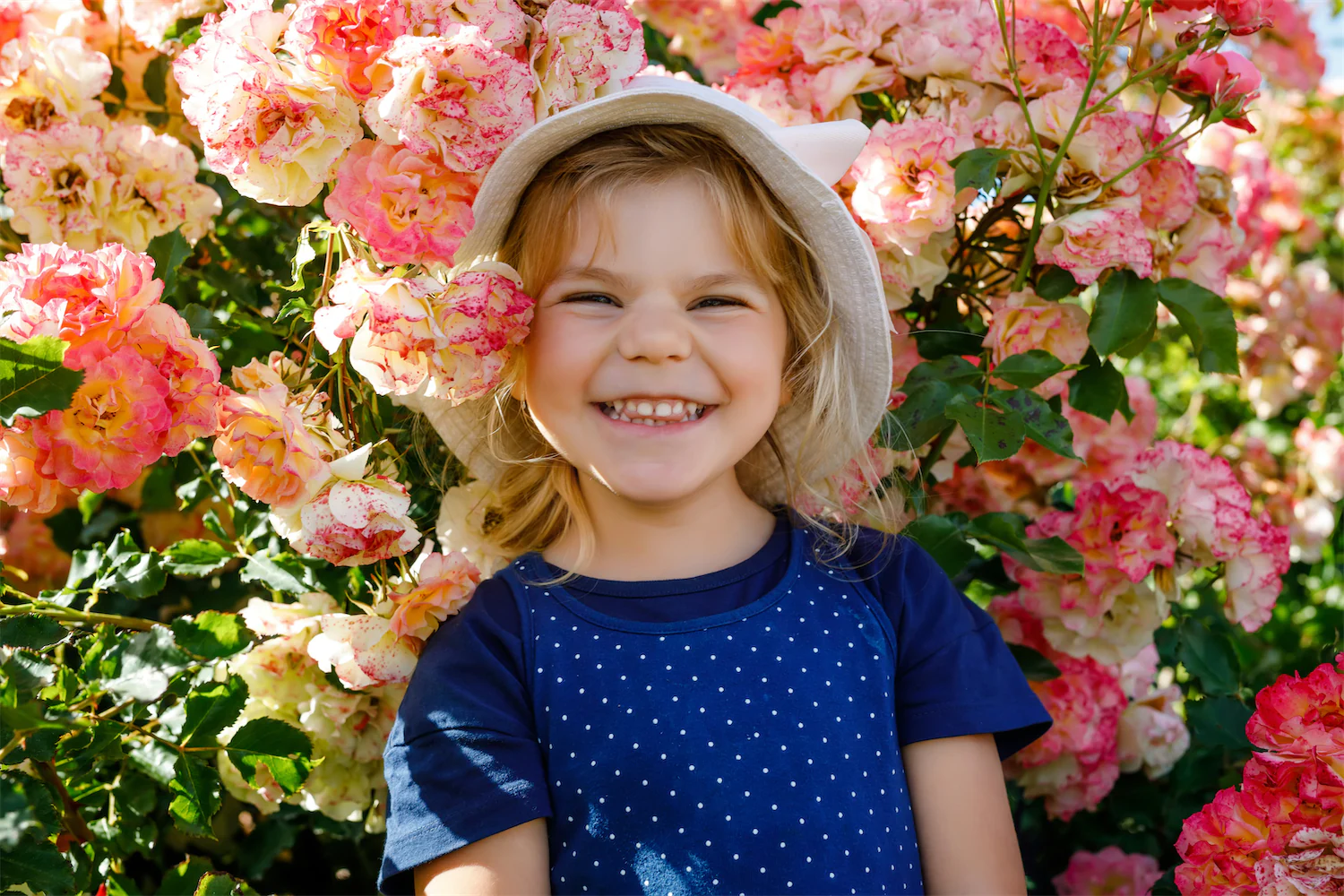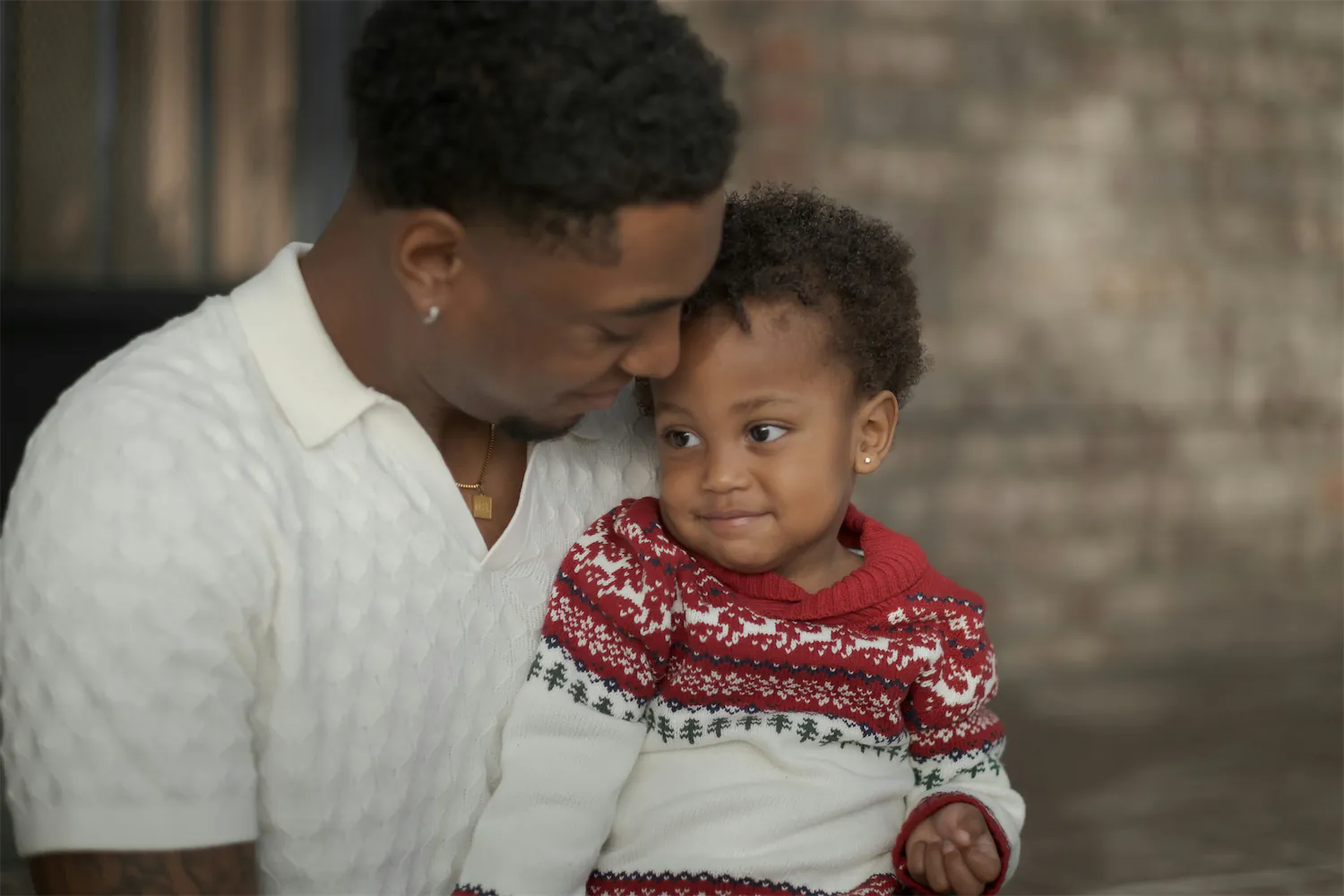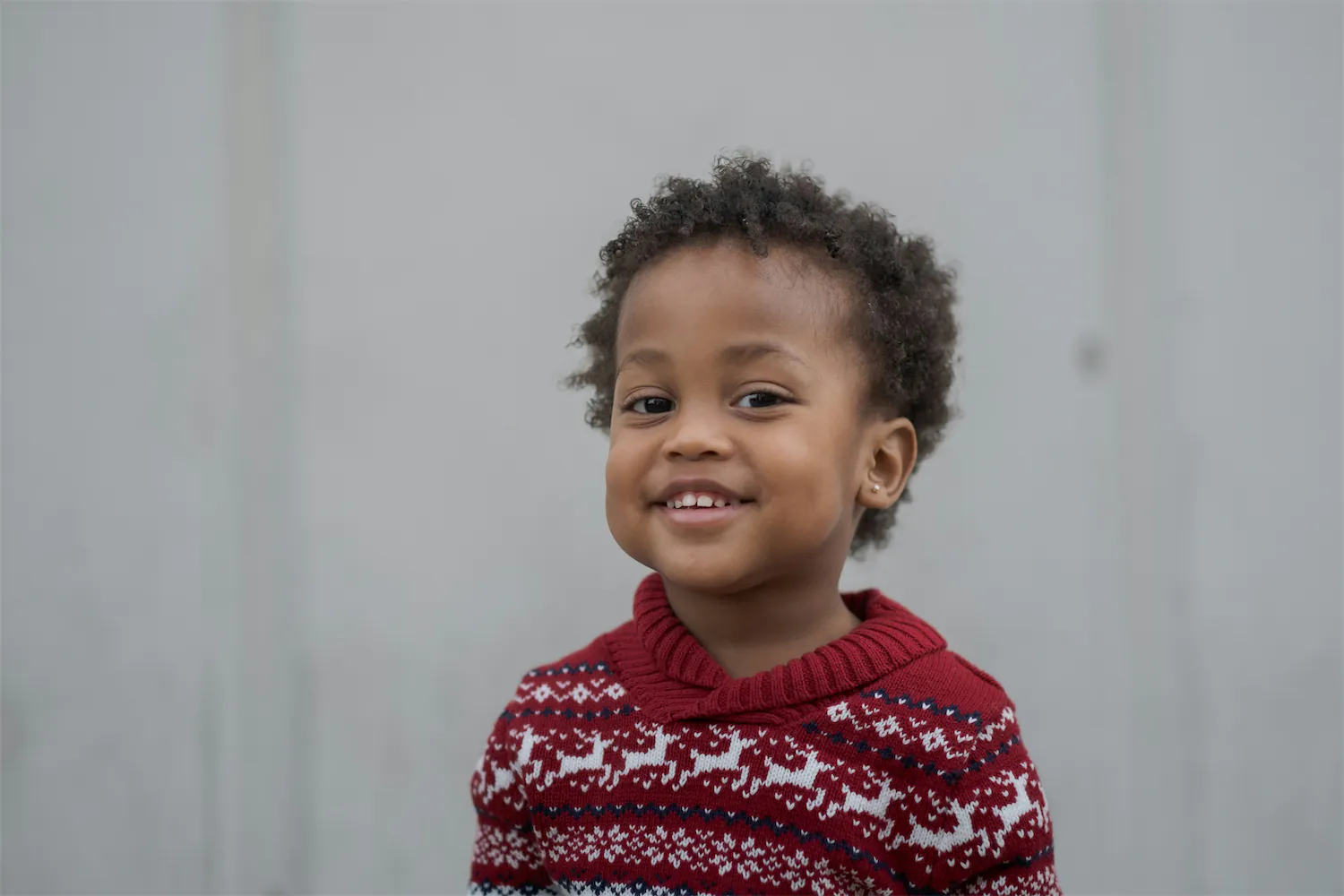Developmental milestones for 3 year olds: Physical, cognitive, social, and language milestones
Developmental milestones for 3 year olds: Physical, cognitive, social, and language milestones
At three, your child may seem less like a toddler and more like a preschooler. This article details the growth and development to expect from your three-year-old and when to contact your child’s pediatrician if you have concerns. Every child develops at their own pace, and these milestones should give you a sense of the skills your child is developing.
At three, your child may seem less like a toddler and more like a preschooler. This article details the growth and development to expect from your three-year-old and when to contact your child’s pediatrician if you have concerns. Every child develops at their own pace, and these milestones should give you a sense of the skills your child is developing.

Megan N. Freeland, PharmD
Content Writer
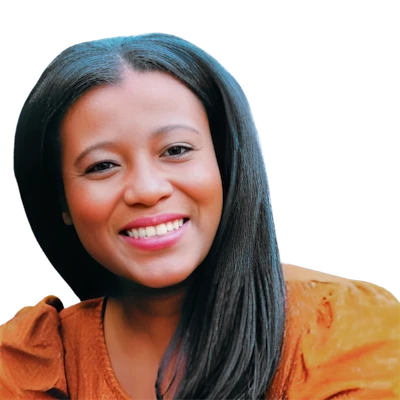
Dr. Marcy Borieux
Pediatrician



Physical development milestones for three-year-olds
As your child approaches three, their physical abilities improve quickly and may surprise you. New skills allow your child to explore more actively, become more independent, and build a strong foundation for more complex abilities.
Gross motor skills
Gross motor milestones at this age include:
Running and jumping: Your three-year-old may run more confidently, handle turns more smoothly, and jump up and down or forward over short distances.
Climbing: Children at this age love to climb on playground equipment, steps, and low furniture. Even though they are learning to move up and down safely, they still need supervision.
Kicking and throwing a ball: A child at this age can kick a ball with enough force to send it rolling a fair distance. They can also throw a ball overhand and may try to catch it.
Pedaling a tricycle: Your child may be ready to ride a tricycle or a balance bike. The pedaling motion can help them strengthen their leg muscles and practice coordination.
Fine motor skills
Common fine motor milestones at this age include:
Holding crayons or markers and drawing shapes: Your three-year-old may enjoy drawing and have a better grip on crayons or markers. They may try to draw circles or other simple shapes, though their lines will be wobbly.
Building with blocks: Your child may be able to stack 10 or more blocks into a tower.
Using scissors with supervision: While they’ll need supervision, some children use child-safe scissors — without a sharp end — at this age. Allowing them to practice helps them build hand strength and control.
Self-feeding with utensils: Three-year-olds get better at using a spoon and fork and, with adult supervision, may start experimenting with spreading with a child-safe butter knife.
Buttoning and unbuttoning large buttons: Many three-year-olds become more curious about dressing themselves and can start practicing with buttons.
Talk to your child’s pediatrician if your three-year-old:
Falls often or has trouble running, jumping, or climbing
Avoids physical activity
Is often frustrated by or avoids fine motor tasks, like holding small objects or using utensils
Language development milestones for three-year-olds
Your child may enjoy talking or expressing their thoughts, needs, and feelings at age three. Common language development milestones at this age include:
Vocabulary growth and more complex sentence structures: At three years old, most children learn new words quickly. Your child’s vocabulary may include 200 to 1,000 words, though it can vary. They’re also starting to combine words and make sentences of three words or more. Three-year-olds may mispronounce words — for example, “wabbit” instead of “rabbit” — as they develop.
Understanding and following directions: Your child may understand and follow simple directions, especially when there are two steps. For example: “Put your shoes in the closet and get your jacket.”
Understanding simple concepts: Three-year-olds are also starting to grasp basic concepts such as colors, size (big vs. small), and quantity (a few vs. a lot).
Social language skills: Your child is developing the skills to communicate effectively. They may say “hello” or “bye-bye” and may say “please” and “thank you” when prompted. They also start understanding social cues, such as when someone is happy, sad, or angry.
Storytelling and imaginative language: As they get more comfortable with language, three-year-olds enjoy storytelling. Their stories may be full of imagination and often include some aspects of real-life events.
Talk to your child’s pediatrician if your three-year-old:
Is not speaking simple three- to four-word sentences
Speaks in a way that you or adults mostly do not understand
Doesn’t follow simple directions such as “Get your shoes”
Social and emotional milestones for three-year-olds
You may notice your child exploring the world with more confidence and curiosity. While doing so, they develop interpersonal skills that will be the foundation for healthy relationships and emotional well-being as they age.
Interacting with others
At three, your child may be more interested in interacting with peers and playing together to achieve a common goal.
Playing together: Three-year-olds start moving from “parallel play” (playing side-by-side) to more interactive play.
Forming friendships: Your child may begin to prefer certain friends or people. They may refer to specific friends by name and get excited to see them.
Learning to share and take turns: Your three-year-old may understand the concept of sharing but needs reminders.
Understanding and expressing emotions
The ability to manage and express emotions, a concept known as “emotional regulation”, is just taking shape in three-year-olds.
Expressing feelings with words: Crying is a normal form of communication at this age, but your child may also say phrases like “I’m mad!” or “I’m sad” to express their feelings.
Showing empathy: Your child may notice when someone else is upset and offer a hug or share a toy.
Developing independence and self-control
As they grow, three-year-olds strive for more independence and begin developing self-control, but they still need help and support.
Practicing independence: A three-year-old may want to dress themselves, put away their toys, or help with simple chores like setting the table.
Coping with frustration: While emotional meltdowns are still common, many three-year-olds are starting to learn that there are ways to cope with frustration.
Talk to your child’s pediatrician if your three-year-old:
Avoids pretend play, social interactions, or playing with other children
Shows extreme aggression
Doesn’t seem to notice when others are upset or respond to comforting or soothing attempts
Cognitive development milestones for three-year-olds
At three years old, your child’s thinking becomes more organized and imaginative, and their memory and understanding of concepts expand rapidly.
Learning through exploration
Three-year-olds are full of questions. This curiosity drives them to explore and learn through hands-on experiences.
Asking “why” questions: These questions can seem repetitive, but they help children gather information, make connections, and better understand the world.
Imaginative play: At this stage, your child may love to pretend, whether they’re imagining themselves as superheroes, chefs, or animals. Pretend play helps your child experiment with different ideas, roles, and problem-solving strategies in a safe, imaginative space.
Thinking and understanding
Three-year-olds are beginning to grasp basic concepts, such as counting, sorting, and identifying colors and shapes.
Counting and numbers: While they may not yet understand quantity or number order perfectly, children at this age can often count to three or higher with some accuracy.
Identifying shapes and colors: Most children at this age can name basic shapes and common colors.
Sorting and grouping: Three-year-olds often enjoy sorting objects by simple characteristics, like grouping blocks by color or shape.
Developing memory and problem-solving skills
Three-year-olds are beginning to use memory to complete tasks and solve simple problems.
Following steps: Children at this age can follow simple instructions that involve multiple steps, such as “Put your book on the shelf, then come to the table.”
Solving simple puzzles and problems: Many three-year-olds enjoy trying to solve puzzles or find solutions to basic problems like opening a small door or fixing a toy.
Remembering routines and rules: Children can start remembering familiar routines and basic household rules at this age.
Understanding cause-and-effect
Three-year-olds are starting to understand cause-and-effect relationships, which helps them learn from their actions and develop reasoning skills. A three-year-old might realize that if they pour water too quickly, it spills or that pushing a toy car hard makes it go faster. These small cause-and-effect discoveries are building blocks for more complex reasoning as they grow.
Talk to your child’s pediatrician if your three-year-old:
Avoids pretend play
Doesn’t follow two-step instructions
How you can support your three-year-old’s development
You can support your child’s development by encouraging their curiosity, praising their efforts, and being present and engaged as they explore the world.
If you have any questions or concerns about your child’s development, speak to your local pediatrician or text a Summer Health pediatrician about them early on. Don’t wait until their scheduled screening. Identifying any issues early can help your child get any support they may need more quickly.
Physical development milestones for three-year-olds
As your child approaches three, their physical abilities improve quickly and may surprise you. New skills allow your child to explore more actively, become more independent, and build a strong foundation for more complex abilities.
Gross motor skills
Gross motor milestones at this age include:
Running and jumping: Your three-year-old may run more confidently, handle turns more smoothly, and jump up and down or forward over short distances.
Climbing: Children at this age love to climb on playground equipment, steps, and low furniture. Even though they are learning to move up and down safely, they still need supervision.
Kicking and throwing a ball: A child at this age can kick a ball with enough force to send it rolling a fair distance. They can also throw a ball overhand and may try to catch it.
Pedaling a tricycle: Your child may be ready to ride a tricycle or a balance bike. The pedaling motion can help them strengthen their leg muscles and practice coordination.
Fine motor skills
Common fine motor milestones at this age include:
Holding crayons or markers and drawing shapes: Your three-year-old may enjoy drawing and have a better grip on crayons or markers. They may try to draw circles or other simple shapes, though their lines will be wobbly.
Building with blocks: Your child may be able to stack 10 or more blocks into a tower.
Using scissors with supervision: While they’ll need supervision, some children use child-safe scissors — without a sharp end — at this age. Allowing them to practice helps them build hand strength and control.
Self-feeding with utensils: Three-year-olds get better at using a spoon and fork and, with adult supervision, may start experimenting with spreading with a child-safe butter knife.
Buttoning and unbuttoning large buttons: Many three-year-olds become more curious about dressing themselves and can start practicing with buttons.
Talk to your child’s pediatrician if your three-year-old:
Falls often or has trouble running, jumping, or climbing
Avoids physical activity
Is often frustrated by or avoids fine motor tasks, like holding small objects or using utensils
Language development milestones for three-year-olds
Your child may enjoy talking or expressing their thoughts, needs, and feelings at age three. Common language development milestones at this age include:
Vocabulary growth and more complex sentence structures: At three years old, most children learn new words quickly. Your child’s vocabulary may include 200 to 1,000 words, though it can vary. They’re also starting to combine words and make sentences of three words or more. Three-year-olds may mispronounce words — for example, “wabbit” instead of “rabbit” — as they develop.
Understanding and following directions: Your child may understand and follow simple directions, especially when there are two steps. For example: “Put your shoes in the closet and get your jacket.”
Understanding simple concepts: Three-year-olds are also starting to grasp basic concepts such as colors, size (big vs. small), and quantity (a few vs. a lot).
Social language skills: Your child is developing the skills to communicate effectively. They may say “hello” or “bye-bye” and may say “please” and “thank you” when prompted. They also start understanding social cues, such as when someone is happy, sad, or angry.
Storytelling and imaginative language: As they get more comfortable with language, three-year-olds enjoy storytelling. Their stories may be full of imagination and often include some aspects of real-life events.
Talk to your child’s pediatrician if your three-year-old:
Is not speaking simple three- to four-word sentences
Speaks in a way that you or adults mostly do not understand
Doesn’t follow simple directions such as “Get your shoes”
Social and emotional milestones for three-year-olds
You may notice your child exploring the world with more confidence and curiosity. While doing so, they develop interpersonal skills that will be the foundation for healthy relationships and emotional well-being as they age.
Interacting with others
At three, your child may be more interested in interacting with peers and playing together to achieve a common goal.
Playing together: Three-year-olds start moving from “parallel play” (playing side-by-side) to more interactive play.
Forming friendships: Your child may begin to prefer certain friends or people. They may refer to specific friends by name and get excited to see them.
Learning to share and take turns: Your three-year-old may understand the concept of sharing but needs reminders.
Understanding and expressing emotions
The ability to manage and express emotions, a concept known as “emotional regulation”, is just taking shape in three-year-olds.
Expressing feelings with words: Crying is a normal form of communication at this age, but your child may also say phrases like “I’m mad!” or “I’m sad” to express their feelings.
Showing empathy: Your child may notice when someone else is upset and offer a hug or share a toy.
Developing independence and self-control
As they grow, three-year-olds strive for more independence and begin developing self-control, but they still need help and support.
Practicing independence: A three-year-old may want to dress themselves, put away their toys, or help with simple chores like setting the table.
Coping with frustration: While emotional meltdowns are still common, many three-year-olds are starting to learn that there are ways to cope with frustration.
Talk to your child’s pediatrician if your three-year-old:
Avoids pretend play, social interactions, or playing with other children
Shows extreme aggression
Doesn’t seem to notice when others are upset or respond to comforting or soothing attempts
Cognitive development milestones for three-year-olds
At three years old, your child’s thinking becomes more organized and imaginative, and their memory and understanding of concepts expand rapidly.
Learning through exploration
Three-year-olds are full of questions. This curiosity drives them to explore and learn through hands-on experiences.
Asking “why” questions: These questions can seem repetitive, but they help children gather information, make connections, and better understand the world.
Imaginative play: At this stage, your child may love to pretend, whether they’re imagining themselves as superheroes, chefs, or animals. Pretend play helps your child experiment with different ideas, roles, and problem-solving strategies in a safe, imaginative space.
Thinking and understanding
Three-year-olds are beginning to grasp basic concepts, such as counting, sorting, and identifying colors and shapes.
Counting and numbers: While they may not yet understand quantity or number order perfectly, children at this age can often count to three or higher with some accuracy.
Identifying shapes and colors: Most children at this age can name basic shapes and common colors.
Sorting and grouping: Three-year-olds often enjoy sorting objects by simple characteristics, like grouping blocks by color or shape.
Developing memory and problem-solving skills
Three-year-olds are beginning to use memory to complete tasks and solve simple problems.
Following steps: Children at this age can follow simple instructions that involve multiple steps, such as “Put your book on the shelf, then come to the table.”
Solving simple puzzles and problems: Many three-year-olds enjoy trying to solve puzzles or find solutions to basic problems like opening a small door or fixing a toy.
Remembering routines and rules: Children can start remembering familiar routines and basic household rules at this age.
Understanding cause-and-effect
Three-year-olds are starting to understand cause-and-effect relationships, which helps them learn from their actions and develop reasoning skills. A three-year-old might realize that if they pour water too quickly, it spills or that pushing a toy car hard makes it go faster. These small cause-and-effect discoveries are building blocks for more complex reasoning as they grow.
Talk to your child’s pediatrician if your three-year-old:
Avoids pretend play
Doesn’t follow two-step instructions
How you can support your three-year-old’s development
You can support your child’s development by encouraging their curiosity, praising their efforts, and being present and engaged as they explore the world.
If you have any questions or concerns about your child’s development, speak to your local pediatrician or text a Summer Health pediatrician about them early on. Don’t wait until their scheduled screening. Identifying any issues early can help your child get any support they may need more quickly.
Summer Health offers fast and reliable pediatric urgent care through online doctors, all via text. Whether you’re worried about your baby's fever, rashes, or other children's health concerns, we provide expert advice and support anytime, right from your phone.

Explore Summer Health
Our team of pediatricians are ready to answer the everyday questions you have about your child’s health.
*Requires Summer Health account, starting at $20/mo
